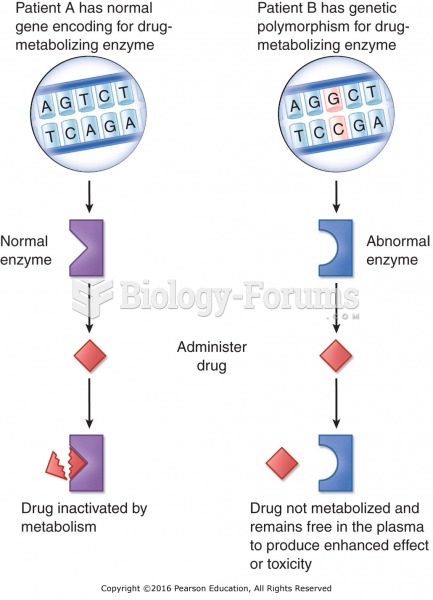Answer to Question 1
Evidence from family, twin, and adoption studies suggests that genes may make people vulnerable to schizophrenia, although there does not appear to be a single gene responsible, but rather a combination of multiple genes. Basically, the more genes you share with someone who has the disorder, the higher your risk of developing it. Neurobiological evidence suggests that dopamine is implicated in schizophrenia because antipsychotic drugs that treat the disease are dopamine antagonists, amphetamines can mimic psychotic symptoms, and antipsychotic drugs can produce motor symptoms similar to Parkinson's disease. However, the relationship is complicated, and involves both abnormal receptor function and alterations in prefrontal activity involving glutamate transmission. Fetal exposure to viral infection, pregnancy complications, and delivery complications have all been implicated in the schizophrenia. Stress has been implicated as trigger for schizophrenia in people who are already vulnerable to the disease. Chaotic family environments and expressed emotions in which people are very critical of the schizophrenic can exacerbate symptoms.
Answer to Question 2
Despite the optimism generated by the effectiveness of antipsychotics, they work only when they are taken properly, and many people with schizophrenia do not routinely take their medication. A number of factors seem to be related to patients' noncompliance with a medication regimen, including negative doctor-patient relationships, cost of the medication, and poor social support. Not surprisingly, negative side effects are a major factor in patient refusal. Antipsychotics can produce a number of unwanted physical symptoms, such as grogginess, blurred vision, and dryness of the mouth. Because the drugs affect neurotransmitter systems, more serious side effects, called extrapyramidal symptoms, can also result. These symptoms include the motor difficulties similar to those experienced by people with Parkinson's disease, sometimes called Parkinsonian symptoms. Akinesia is one of the most common; it includes an expressionless face, slow motor activity, and monotonous speech. Another extrapyramidal symptom is tardive dyskinesia, which involves involuntary movements of the tongue, face, mouth, or jaw and can include protrusions of the tongue, puffing of the cheeks, puckering of the mouth, and chewing movements. Tardive dyskinesia seems to result from long-term use of high doses of antipsychotic medication and is often irreversible. A significant number of people who could benefit from antipsychotic medications find them unacceptable as a treatment, which may explain the relatively high rates of refusal and noncompliance.







